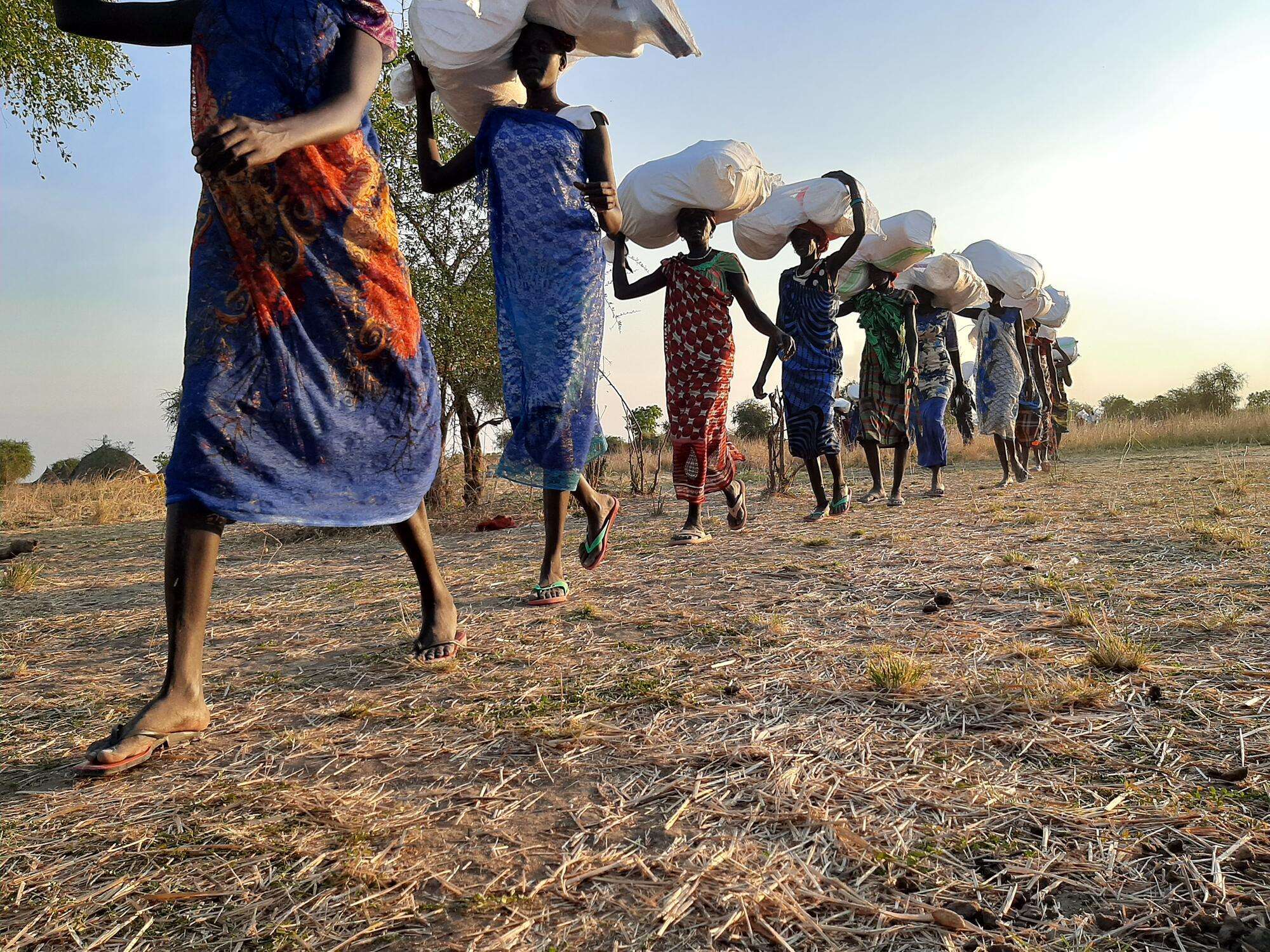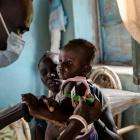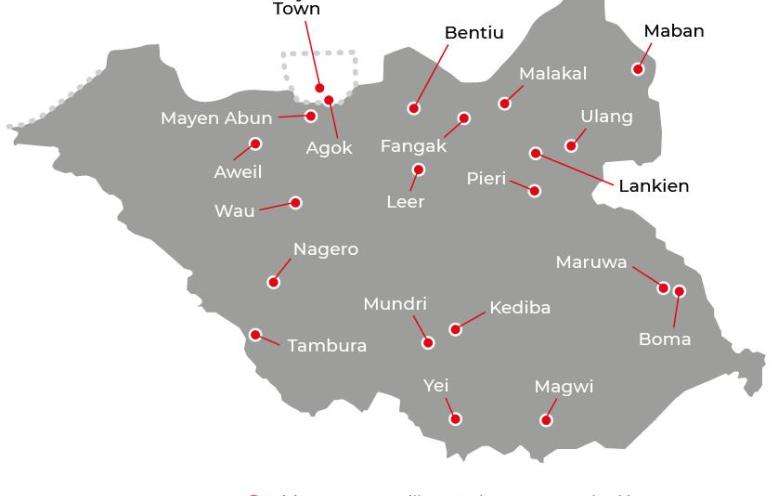Displaced people
Due to the impact of the crisis in Sudan that started in April 2023, MSF has launched emergency responses in Upper Nile and Northern Bahr El Ghazal states, running three mobile clinics in Renk and one in Aweil. In Renk, our water and sanitation teams are treating river water to provide safe drinking water for displaced people, while medical teams are screening children for malnutrition and have set up a measles isolation ward while conducting catch-up vaccinations, covering 1,469 children in two collective settlements so far. We are also providing referrals for people in need of specialist medical care, as well as mental health support and health education. MSF is also responding to measles among returnees in Bentiu.
Floods
Around two-thirds of South Sudan was covered by floodwaters in 2022’s rainy season, affecting over a million people. For the past four years, the flooding has been unprecedented in its intensity, putting the country on the frontlines of the climate crisis. Tens of thousands of people live in displacement camps, where there is a lack of shelter, safe drinking water, health care, and sanitation facilities.
With many communities marooned on ‘islands,’ MSF runs mobile clinics to improve access to health care and provides emergency referrals by boat. In some places, we also set up temporary structures to ensure continuity of care. In Bentiu, Unity state, we have responded to an influx of patients with waterborne diseases by increasing our bed capacity from 135 to 175. In Maban, Upper Nile state, we distributed relief items, such as plastic sheeting, blankets, hygiene kits, and cooking equipment, and installed water and sanitation facilities. At times, our teams have had to travel on foot for several hours to deliver drugs to people displaced by flooding in Abyei Special Administrative Area.
Violence
Violence escalated in many areas in 2022. Our teams responded to conflict-related emergencies in seven locations, distributing relief items and running mobile clinics in affected communities.
The conflict between armed groups in Upper Nile and Greater Fangak has caused hundreds of casualties and displaced tens of thousands of people. Our hospitals in Old Fangak, Malakal town, and the Malakal Protection of Civilians (POC) site—the last remaining POC site in the country—have received many wounded patients. Some arrive with serious infections, as it sometimes takes them days to reach the hospital due to insecurity and flooding.
In July, we launched a three-month emergency intervention and distributed relief items in Magwi county, Eastern Equatoria state, to assist communities with medical and water and sanitation needs after conflict broke out in the region. We also started supporting medical services in five general health care facilities. In an emergency intervention in Tambura, Western Equatoria state, following the displacement of around 80,000 people due to violence, our teams provided general health care and vaccinations, along with maternal health and mental health support.
Our teams were not immune to the violence. A South Sudanese nurse from our Agok hospital was killed inside his home when intercommunal fighting broke out. Another MSF staff member was shot dead in Leer county. In Yei, an armed group robbed an MSF team on the road and set two of our vehicles on fire.
When violent clashes broke out in Agok in February and March, most residents fled to Abyei town or Twic county. We moved with them so we could continue responding to their needs, supporting services in Ameth-Bek hospital in Abyei and providing medical assistance to displaced people in Twic county. In addition, we offered general health care, including mental health support, in Tambura county, Western Equatoria state, and supported five general health facilities in Leer county, Unity state, where we also distributed relief items to people affected by the violence.
Outbreak responses
In a world first, our teams carried out a mass vaccination campaign in the largest displacement camp in South Sudan in response to an active outbreak of hepatitis E, a virus that is particularly deadly for pregnant women, killing up to 25 percent of those infected. In March, April, and October 2022, MSF and the Ministry of Health jointly carried out three rounds of vaccinations in the camp in Bentiu county. MSF hopes that this precedent will encourage uptake of the vaccine in other countries experiencing similar outbreaks.
Our teams also ran vaccination campaigns to respond to measles outbreaks in five states and Greater Pibor Administrative Area. In Maban, we distributed mosquito nets to households to protect them from malaria after other organizations ceased malaria activities due to funding cuts.
Handovers in Mundri and Yei
In May, after more than five years of delivering lifesaving care to the people of Greater Mundri, Western Equatoria state, we handed over our activities to the Ministry of Health. We launched an emergency intervention in Mundri in 2016, in response to critical humanitarian and medical needs; however, as the project attained stability, we decided to focus on assisting communities in more neglected areas. For five years, we treated hundreds of thousands of patients, responded to local emergencies, and trained medical staff—many of whom are now qualified health care workers.
We began supporting the inpatient department in Yei hospital in September 2018 by donating drugs and equipment, training staff, and assisting with maintenance of the facility. Last year, we handed over the department to the Ministry of Health. We have now expanded our outreach activities in Yei county, providing health care through three Ministry of Health facilities, and running mobile clinics and community-based health services.
MSF Academy
After decades of conflict, the severe shortage of health infrastructure and qualified medical professionals continues to pose major challenges to the development of a good health care system in South Sudan, the world’s youngest nation. MSF Academy for Healthcare aims to strengthen competencies of health care workers and improve the quality of care. In June, the first group of 35 nursing students in Old Fangak, Jonglei state, graduated after completing 18 months of nursing care training.










